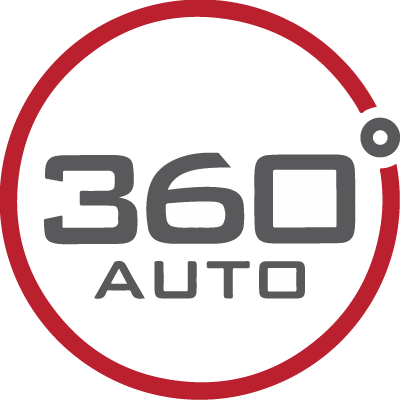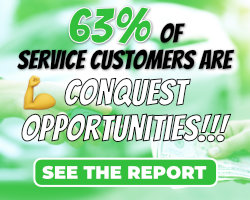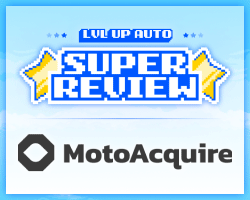
Automotive Retail Disruption: How Process Would’ve Made a Difference
We all know good habits are learned in bad times, and bad habits are learned in good times. For virtually every car dealer in America, the good times started sometime around 2011, and ended suddenly in mid-March 2020.
An industry disruption no one could’ve predicted.
So, what did we get from nine years of good times? Yep, nine years of building bad habits.
I’ve been creating, teaching, and installing great processes for dealers, groups, and OEMs for more than a decade. For my clients who reinforced these, the current disruption has been tough but not devastating.
But… Processes Wouldn’t Have Stopped the Disruption
Certainly, if your state shut down all vehicle sales, great processes that are strictly enforced would not help you sell vehicles where prohibited by law.
Of course, if your state is allowing limited sales, great processes are making a difference. Instead of selling one or no vehicles today, you’re selling eight. Yes, you used to sell twenty on a typical day like today, but that was last month. The guy across town used to sell fifteen on a typical day… today he sold one… or none.
Your understanding of process, your firm belief that process is what really sells cars, and your team’s strict adherence to your processes made all the difference.
How? Well, if this describes you, then improving your processes as the market changed was a simple task. You were able to adapt… overcome… improvise.
You were able to do this while the dealers, GMs, and desk managers across town basically froze. They were paralyzed by the unknown. They only knew how to sell vehicles to Fresh Ups… and the Up Bus ain’t coming today.
Incremental Sales Matter for Tomorrow
Another way your strict adherence to processes is helping you in this time of unprecedented disruption is on your balance sheet. Because you sold incremental units every month for the last several years (ever since you became a process evangelist), you have less debt and more cash reserves than the guy across town.
You’re better equipped to weather any storm.
Let’s say in 2014 your store was selling about 100 vehicles/month, and let’s assume your market has been relatively flat since then. In February 2015, you installed some great sales processes that you strictly enforced and continually improved. Because of these processes, your team sold ten incremental units that month and every month since.
Ten extra vehicles a month may not sound like a lot, but the profit from these incremental units goes straight to the bottom line. The most profitable unit of anything you sell is the last one you sell – every incremental unit is more profitable than the previous one. (Provided, of course, your processes are selling these units, and these are not the result of some panicked desk manager giving away all the gross to make his or her bonus.)
By adding these ten units each month (and assuming your growth is merely linear, which is the most conservative way to model this), you find yourself selling 120 per month by February 2016, 130 per month by February 2017, 140 per month by February 2018, 150 per month by February 2019, and 160 in February 2020.
So, while your competitors saw flat (or worse) sales over these last five years, your team sold an incremental 1,860 units over that time. Here’s how that math works:
- 120 incremental sold from February 2015 to January 2016
- 240 from February 2016 to January 2017
- 360 from February 2017 to January 2018
- 480 from February 2018 to January 2019
- 600 from February 2019 to January 2020
- 60 incremental units in February 2020
How much better is your cash/debt position today if this describes you? (Plus, this assumes your growth was merely linear.)
Now is the Perfect Time
Your dealership basically has a clean slate!
When consumers resume buying vehicles you have a choice. You can take what the market gives you (which is what 95% of dealerships still in business will do), or you can hit the ground running with superior processes, good business rules (that are strictly enforced), and an unparalleled customer experience that earns you more than your share of the business.
For example, I’m working with one of my clients (who operates five stores) to build an organization that will immediately take a market leadership position when the dust settles. The culture, structures, processes, pay plans, and rules this group is standardizing will not be easily copied.
In other words, their competitors will see this group doing better, but they won’t have a clue how they’re doing it.
This group will immediately enjoy:
- Lower turnover
- Higher employee satisfaction
- Higher customer satisfaction
- Higher grosses
- Real market share growth
And none of this will be the result of which website vendor they choose, where they post their vehicles for sale, or how much they spend with Google.
So, How Will You Spend Your Free Days?
Most every dealer and manager will spend the coming weeks admiring the problem. They’ll lament about the market, the economy, the government, and their OEMs.
When the industry begins to recover, these dealers and managers will start griping again about how they “really just need to get some good people.”
Stop. The. Madness.
It’s not about the people on the frontlines, it’s about the people at the top. If the leaders in your store or group create a great culture, develop and enforce great processes, and drive the activities of their people, you’ll win where others will struggle.
Plus, if you start creating these now – while we all have a lot of free time and a clean slate – you’ll immediately take a market leadership position that cannot be duplicated.
Process matters. Process sells cars.
Good selling!












Current Discussion Topics